
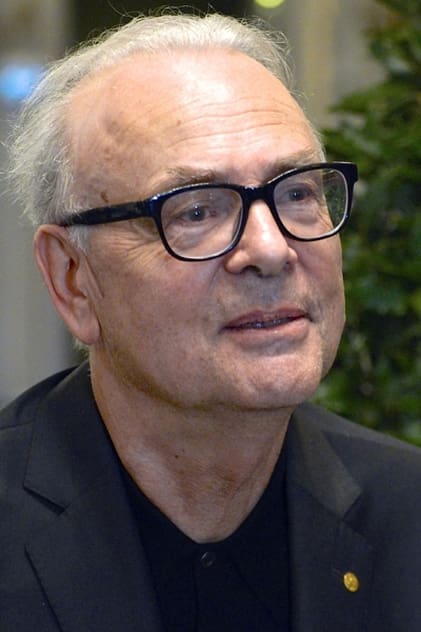
Patrick Modiano
Born: July 30, 1945
in Boulogne-Billancourt, Hauts-de-Seine, France
in Boulogne-Billancourt, Hauts-de-Seine, France
Jean Patrick Modiano (born 30 July 1945), generally known as Patrick Modiano, is a French novelist and recipient of the 2014 Nobel Prize in Literature. He is a noted writer of autofiction, the blend of autobiography and historical fiction.
In more than 40 books, Modiano used his fascination with the human experience of World War II in France to examine individual and collective identities, responsibilities, loyalties, memory, and loss. Because of his obsession with the past, he was sometimes compared to Marcel Proust. Modiano's works have been translated into more than 30 languages and have been celebrated in and around France, but most of his novels had not been translated into English before he was awarded the Nobel Prize.
Modiano previously won the 2012 Austrian State Prize for European Literature, the 2010 Prix mondial Cino Del Duca from the Institut de France for lifetime achievement, the 1978 Prix Goncourt for Rue des boutiques obscures, and the 1972 Grand Prix du roman de l'Académie française for Les Boulevards de ceinture.
Jean Patrick Modiano was born in Boulogne-Billancourt, a commune in the western suburbs of Paris on July 30, 1945. His father, Albert Modiano (1912–77, born in Paris), was of Jewish-Italian origin; on his paternal side he was descended from the well known Italo-Jewish Modiano family of Thessaloniki, Greece. His mother, Louisa Colpeyn (1918–2015), was a Belgian (Flemish) actress. Modiano's parents met in occupied Paris during World War II and began their relationship semi-clandestinely (they separated shortly after Patrick's birth). His father had refused to wear the Yellow badge and did not turn himself in when Paris Jews were rounded up for deportation to Nazi concentration camps. He was picked up in February 1942, and narrowly missed being deported, after an intervention from a friend. During the war years Albert did business on the black market and was allegedly associated with the Carlingue, the French Gestapo auxiliaries which recruited its leaders from the underworld. Albert Modiano never clearly spoke of this period to his son before his death in 1977.
Patrick Modiano's childhood took place in a unique atmosphere. He was initially brought up by his maternal grandparents who taught him Flemish as his first language. The absence of his father, and frequently also of his mother, on tour, brought him closer to his two-year-younger brother, Rudy, who suddenly died of a disease at age 9 (Patrick Modiano dedicated his works from 1967 to 1982 to his brother). Recalling this tragic period in his famed memoir Un Pedigree (2005), Modiano said: "I couldn't write an autobiography, that's why I called it a 'pedigree': It's a book less on what I did than on what others, mainly my parents, did to me." ...
Source: Article "Patrick Modiano" from Wikipedia in English, licensed under CC-BY-SA 3.0.
In more than 40 books, Modiano used his fascination with the human experience of World War II in France to examine individual and collective identities, responsibilities, loyalties, memory, and loss. Because of his obsession with the past, he was sometimes compared to Marcel Proust. Modiano's works have been translated into more than 30 languages and have been celebrated in and around France, but most of his novels had not been translated into English before he was awarded the Nobel Prize.
Modiano previously won the 2012 Austrian State Prize for European Literature, the 2010 Prix mondial Cino Del Duca from the Institut de France for lifetime achievement, the 1978 Prix Goncourt for Rue des boutiques obscures, and the 1972 Grand Prix du roman de l'Académie française for Les Boulevards de ceinture.
Jean Patrick Modiano was born in Boulogne-Billancourt, a commune in the western suburbs of Paris on July 30, 1945. His father, Albert Modiano (1912–77, born in Paris), was of Jewish-Italian origin; on his paternal side he was descended from the well known Italo-Jewish Modiano family of Thessaloniki, Greece. His mother, Louisa Colpeyn (1918–2015), was a Belgian (Flemish) actress. Modiano's parents met in occupied Paris during World War II and began their relationship semi-clandestinely (they separated shortly after Patrick's birth). His father had refused to wear the Yellow badge and did not turn himself in when Paris Jews were rounded up for deportation to Nazi concentration camps. He was picked up in February 1942, and narrowly missed being deported, after an intervention from a friend. During the war years Albert did business on the black market and was allegedly associated with the Carlingue, the French Gestapo auxiliaries which recruited its leaders from the underworld. Albert Modiano never clearly spoke of this period to his son before his death in 1977.
Patrick Modiano's childhood took place in a unique atmosphere. He was initially brought up by his maternal grandparents who taught him Flemish as his first language. The absence of his father, and frequently also of his mother, on tour, brought him closer to his two-year-younger brother, Rudy, who suddenly died of a disease at age 9 (Patrick Modiano dedicated his works from 1967 to 1982 to his brother). Recalling this tragic period in his famed memoir Un Pedigree (2005), Modiano said: "I couldn't write an autobiography, that's why I called it a 'pedigree': It's a book less on what I did than on what others, mainly my parents, did to me." ...
Source: Article "Patrick Modiano" from Wikipedia in English, licensed under CC-BY-SA 3.0.
Movies for Patrick Modiano...
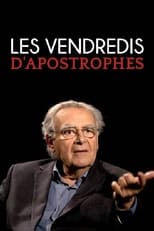
Title: Les vendredis d'Apostrophes
Character: Self (archive footage)
Released: November 6, 2015
Type: Movie
40 years of "Apostrophes". Hours and historical meetings, Pierre Assouline has composed an anthology of the best extracts presented in the form of a primer, which he had commented on by a surprised Bernard Pivot.


Title: Babel
Released: March 16, 2014
Type: TV
Literature talkshow with Jessika Gedin.

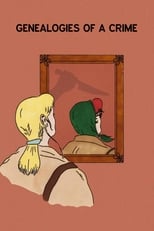
Title: Genealogies of a Crime
Character: Bob
Released: May 4, 1997
Type: Movie
An attorney defends a young man on trial for killing his aunt — a psychiatrist who took him in to study possible homicidal tendencies.

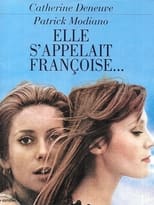
Title: Elle s'appelait Françoise
Character: Self
Released: December 12, 1996
Type: Movie
Françoise Dorléac et Catherine Deneuve were nearly twins. Only 18 months separated these sisters who liked to say “Both of us could make the ideal woman”. Françoise Dorléac created her own style, unique even in France : a rare mix of elegance, humor, glamour. This is a touching portrait of an actress whose glory was cut short, seen through the eyes of her sister Catherine.

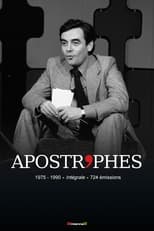
Title: Apostrophes
Character: Self
Released: January 10, 1975
Type: TV
Apostrophes was a live, weekly, literary, prime-time, talk show on French television created and hosted by Bernard Pivot. It ran for fifteen years (724 episodes) from January 10, 1975, to June 22, 1990, and was one of the most watched shows on French television (around 6 million regular viewers). It was broadcast on Friday nights on the channel France 2 (which was called "Antenne 2" from 1975 to 1992). The hourlong show was devoted to books, authors and literature. The format varied between one-on-one interviews with a single author and open discussions between four or five authors.
